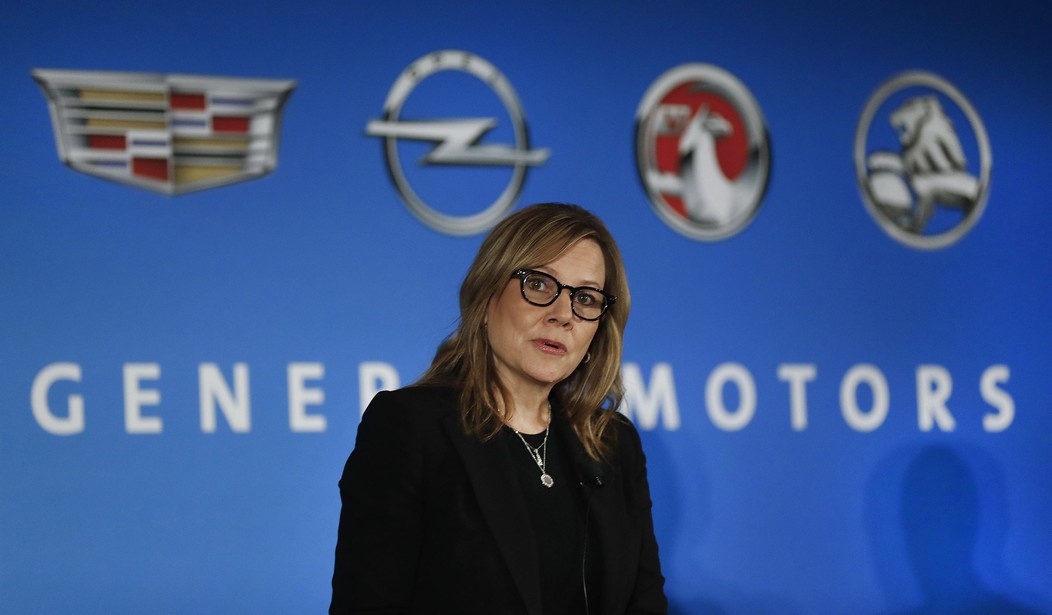Auto manufacturers have allegedly been sharing drivers’ data with brokers without consent. Lawmakers on Friday demanded that the Federal Trade Commission (FTC) launch an investigation into these companies after reports of this practice.
Sens. Ron Wyden (D-OR) and Edward J. Markey (D-MA) penned a letter to FTC Chair Lina S. Khan based on an oversight investigation and reports from the New York Times, which details how General Motors (GM), Honda, and Hyundai disclosed the driving data of millions of Americans to Verisk Analytics without obtaining authorization from consumers.
The senators’ letter revealed that the three companies shared sensitive driving data, including acceleration, braking, and location information, with Verisk Analytics. GM admitted to also sharing this information with two other unnamed companies.
Verisk used the data to compile Driving Behavior Data History reports on each driver, according to the lawmakers. This information was then sold to insurance companies to help them assess drivers’ safety habits. GM, in particular, allegedly tricked customers into joining its Smart Driver program by combining consent for important safety emails with consent to data sharing. The company did not explicitly inform consumers about what they were agreeing to.
“GM failed to obtain informed consent from consumers before sharing their data and used manipulative design techniques, known as dark patterns, to coerce consumers into enrolling in its Smart Driver program,” wrote Senators Wyden and Markey.
The lawmakers said the same about Honda and Hyundai, accusing them of deceptive practices. Honda allegedly enrolled consumers in its Driver Feedback program, hiding disclosures about data sharing. Hyundai automatically enrolled consumers who activated their vehicle’s internet connection into its Driving Score program without informing them that their data would be sold.
“Consumers were not enrolled in this data-sharing program automatically but had to enroll in an optional Driver Feedback program through the company’s mobile app,” the letter stated.
Honda received about $25,920 for sharing consumer data. Hyundai received over $1 million.
The data sharing was revealed in a New York Times report detailing how LexisNexis “traditionally kept tabs on car accidents and tickets.”
One of the customers highlighted in the report had requested a “consumer disclosure report” and discovered how much of his data had been recorded.
What it contained stunned him: more than 130 pages detailing each time he or his wife had driven the Bolt over the previous six months. It included the dates of 640 trips, their start and end times, the distance driven and an accounting of any speeding, hard braking or sharp accelerations. The only thing it didn’t have is where they had driven the car.
On a Thursday morning in June for example, the car had been driven 7.33 miles in 18 minutes; there had been two rapid accelerations and two incidents of hard braking.
According to the report, the trip details had been provided by General Motors — the manufacturer of the Chevy Bolt. LexisNexis analyzed that driving data to create a risk score “for insurers to use as one factor of many to create more personalized insurance coverage,” according to a LexisNexis spokesman, Dean Carney. Eight insurance companies had requested information about Mr. Dahl from LexisNexis over the previous month.
As a result, the customer’s insurance rates had been raised based on data he did not know his insurance company had obtained from the automaker.
I’m not normally a fan of government involvement in corporate matters. But this appears to be a situation where it is warranted. If these companies failed to obtain informed consent and used deceptive practices to get the information, then they essentially defrauded their customers and violated their right to privacy.
The fact that these companies used questionable methods to earn more of a profit off of their consumers is also pretty egregious, especially if it resulted in their insurance rates being hiked because their information was being sold. This type of exploitation should not be allowed.
When someone decides to purchase a new vehicle, they should not have to worry about whether the company will trick them into agreeing to have their data shared. The consumer should be the one to choose whether they wish to give their data to another party. By engaging in these practices, the companies denied them that choice, which means they should be held accountable.













